/https://storage.googleapis.com/s3-autonomous-upgrade-3/static/upload/images/new_post/6-productivity-tips-for-working-from-home-with-pets-1577.jpg)
6 Productivity Tips for Working from Home with Pets
If you have pets, you know they can require a lot of your time and attention, and sometimes it’s difficult to balance your professional responsibilities with their needs, especially working from home. Here we’ve examined some of the ways you can ensure your little ones are well cared for, while still staying on top of your work and maintaining productivity.
With the dramatic increase in remote working rates over the past year, more and more people have gained “fur-workers,” with pets by their side throughout the day. Working remotely comes with its own advantages and difficulties, especially when you have a pet as a coworker who needs regular attention and entertainment.
Pets can reduce stress and anxiety, which leads to a better work environment. Studies show pets lower stress hormones, and some show that workplaces that allow pets see higher morale and productivity. However, dogs barking, cats whining, or rabbits hopping can be a real distraction from work. How can you strike the right balance?
A 2016 survey found that about half of Americans have dogs about 35% have cats. (This is even higher for millennials, with about three-fourths of those under 30 years old owning dogs.) Although they can bring distractions, there is also evidence that pets can make workers less stressed, or—even better—reach higher productivity while working.
Certainly, there are many factors involved in optimizing efficiency during the work day. Environmental factors include all of the influences around you while you focus, such as your diet, amount of light, presence of other people at home, noise levels, and your work space. This includes ergonomic office equipment, such as standing desks or ergonomic office chairs which have scientific evidence for improving posture and health outcomes for workers spending hours in front of screens. And of course, your pet is a top environmental factor for productivity.
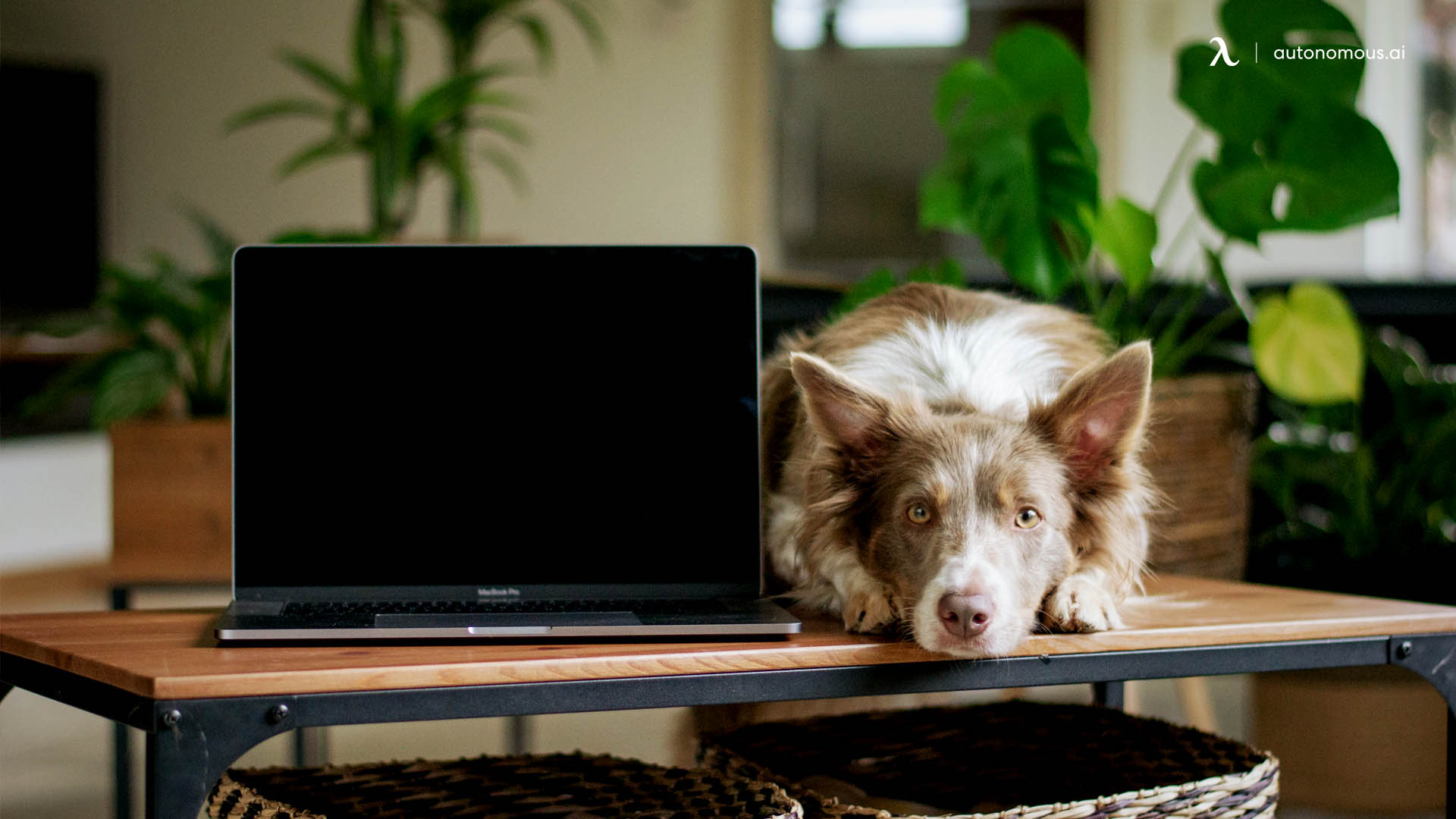
A 2017 academic review in the International Journal of Environmental Research and Public Health sought to evaluate the validity of stress reduction with pets, therapy dogs, or emotional support animals, and found substantial evidence that pets not only reduce stress (measured by lower blood pressure, heart rate, or cortisol levels), but can also lead to improved performance in mental tasks like arithmetic or speech exercises.
Furthermore, in 2018 Nationwide Pet Insurance and the Human-Animal Bond Research Institute (HABRI) conducted a study which found that employees at pet-friendly workplaces were three times more likely to report a positive working relationship with their boss and coworkers—significantly more than those in non-pet-friendly environments. Even for those working from home, pets can lead to an improvement and mood resulting in better coworker relationships and communication.
Despite the many positive benefits of pet ownership, working remotely with a pet can also lead to genuine distractions and a dip in efficiency. Even a well-trained dog cannot simply sit in one spot all day; it will need regular walks and feeding time. Cats will need a litter box cleaning once per day to avoid odors in the office. These basic functions of pet ownership—even before accounting for unexpected disruptions or too-long snuggle sessions—come at the expense of valuable working time. Check out the tips below for ideas to maintain your productivity and still keep your pet loved and entertained.
Start the day with exercise
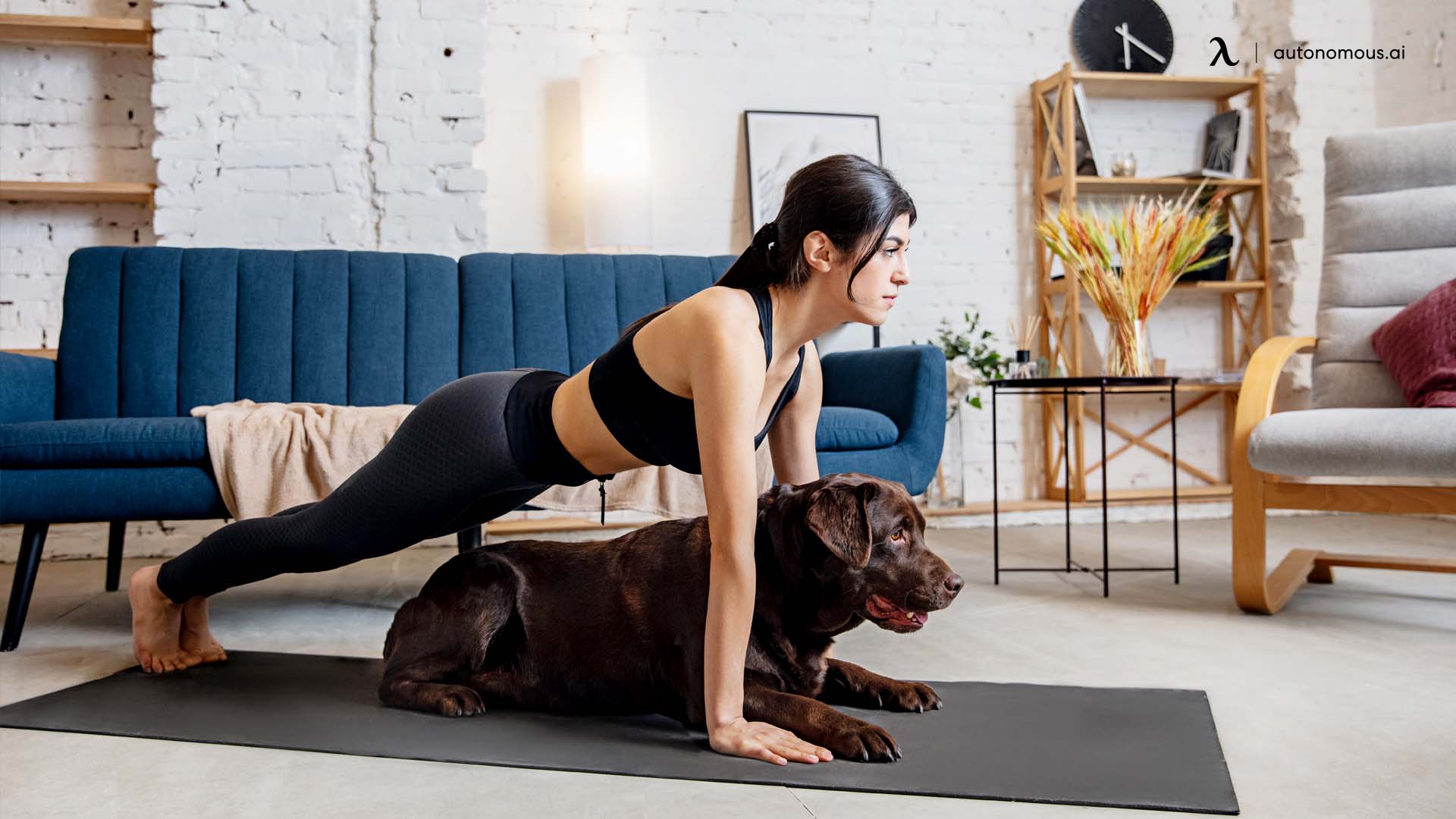
As the old adage goes, a tired dog is a happy dog. If you start the work day with play or walking, your pet will be tired out enough to lounge while you dig into your projects. For dogs, walking is just about the best bonding activity you can do, with many physical, mental, and emotional benefits for the dog. For other pets, bring out a ball or toy that will get their heart rate up, allowing for time to nap later when you need to focus. (And let’s face it, a little movement will also put you in a good state of mind before work!)
Experts also recommend “mental exercise” to tire out your pet, such as with puzzle toys, an obstacle course of household items for them to navigate, hide-and-go-seek with treats, or scented items.
Separate work space from play space
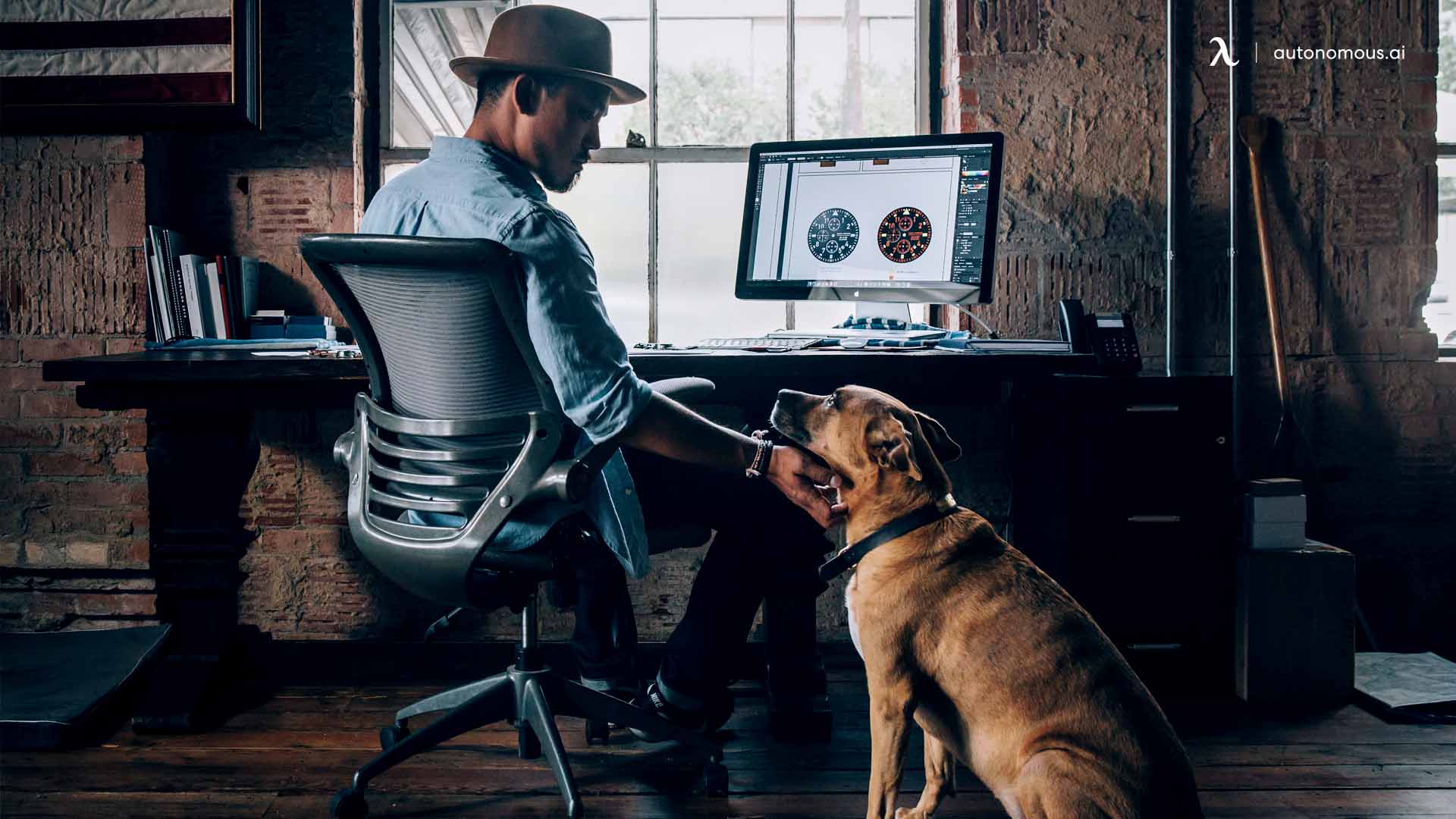
It helps to establish a simple divide between your office area and the play area for your pet. Setting limits during your work from home hours helps get your pet into the routine of the day, whether you place them in their crate or gate them off to a certain space in the home.
This area should be one that will put your pet at ease. Don't think of it as a "time out zone." Give them toys and decorations to keep them occupied on their own. Rotate your pet’s toys each week so they have new options to play with each week, which also creates more excitement around toys that they haven’t gotten for a while.
It will go a long way to keeping them happy during the day to set them up in a place where they can play, relax, and sleep. On the flip side, do not give them too much attention when they enter your work space, since that will encourage them to nudge you even during work hours. Boundaries are good.
Be mindful of feeding times
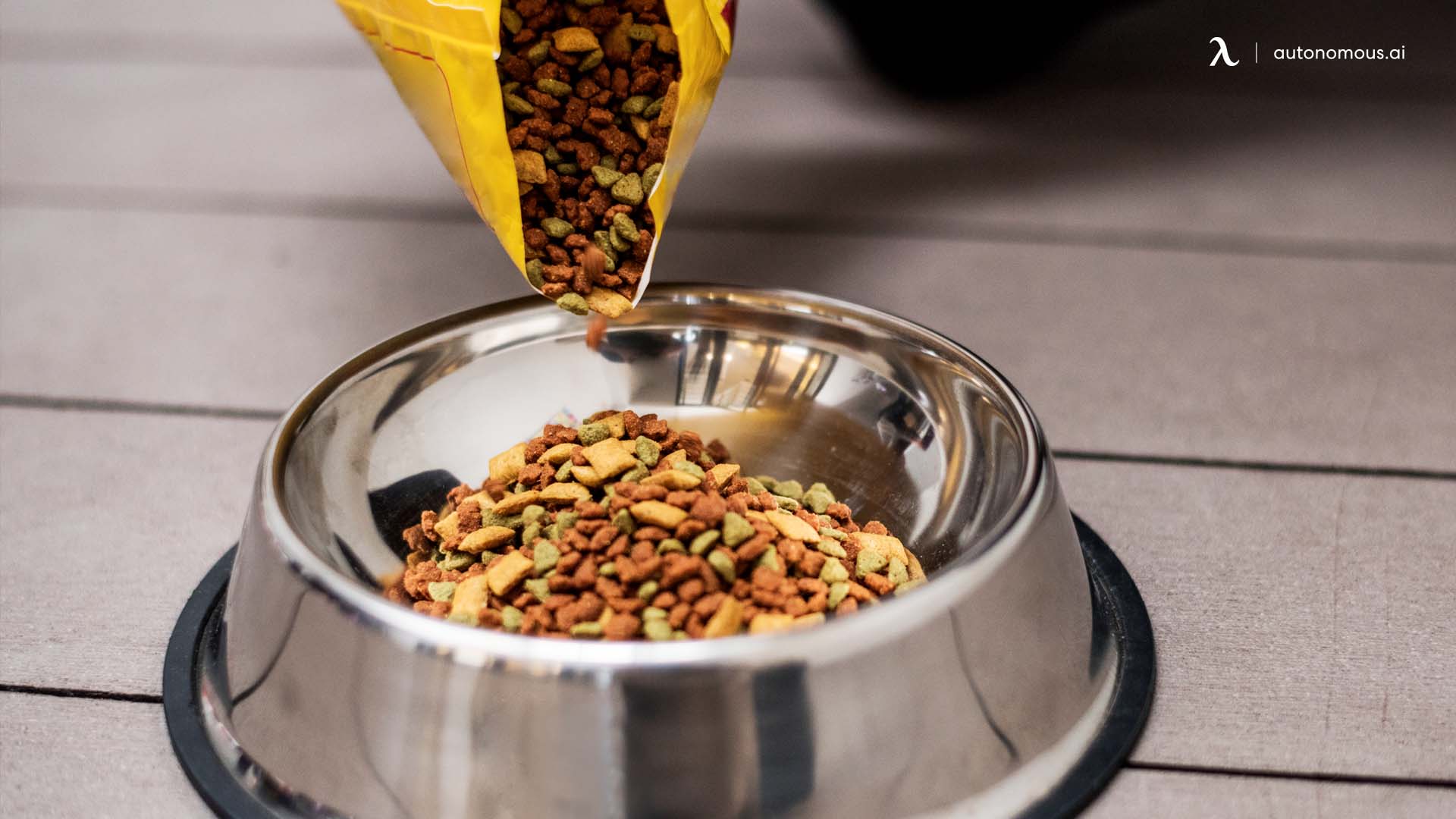
Feeding time is an important bonding event with pets, and also signals that you are giving them attention. Consider dividing up your pet’s meals into more frequent, smaller meals that you can incorporate in puzzle or training time. This can also help fight the urge to overfeed the pet or overindulge with treats just to keep them occupied during the day.
Stick to regular play hours
Just like you need a work from home routine to stay sane, so does your pet. Although they have a separate play space, you will want to spend time with your pet regularly throughout the day for both of your mental health.
Set aside a period of time each day to play with your pet, and try to keep it around the same time each day to establish expectations and routine with the pet. (You might even consider blocking off this time on your work calendar to avoid a meeting.) If you have many meetings throughout the day and cannot stick to specific time periods, generally try to stick to one in the morning, one midday, and one in the afternoon.
This way, instead of getting up to play with them for a few short minutes several times during the day, it is more effective to get all your playtime out in one twenty-minute block. You do not want to set the expectation that if they do something cute, you can come over to them each time, otherwise they will catch on and keep distracting you.
Don’t give in to begging
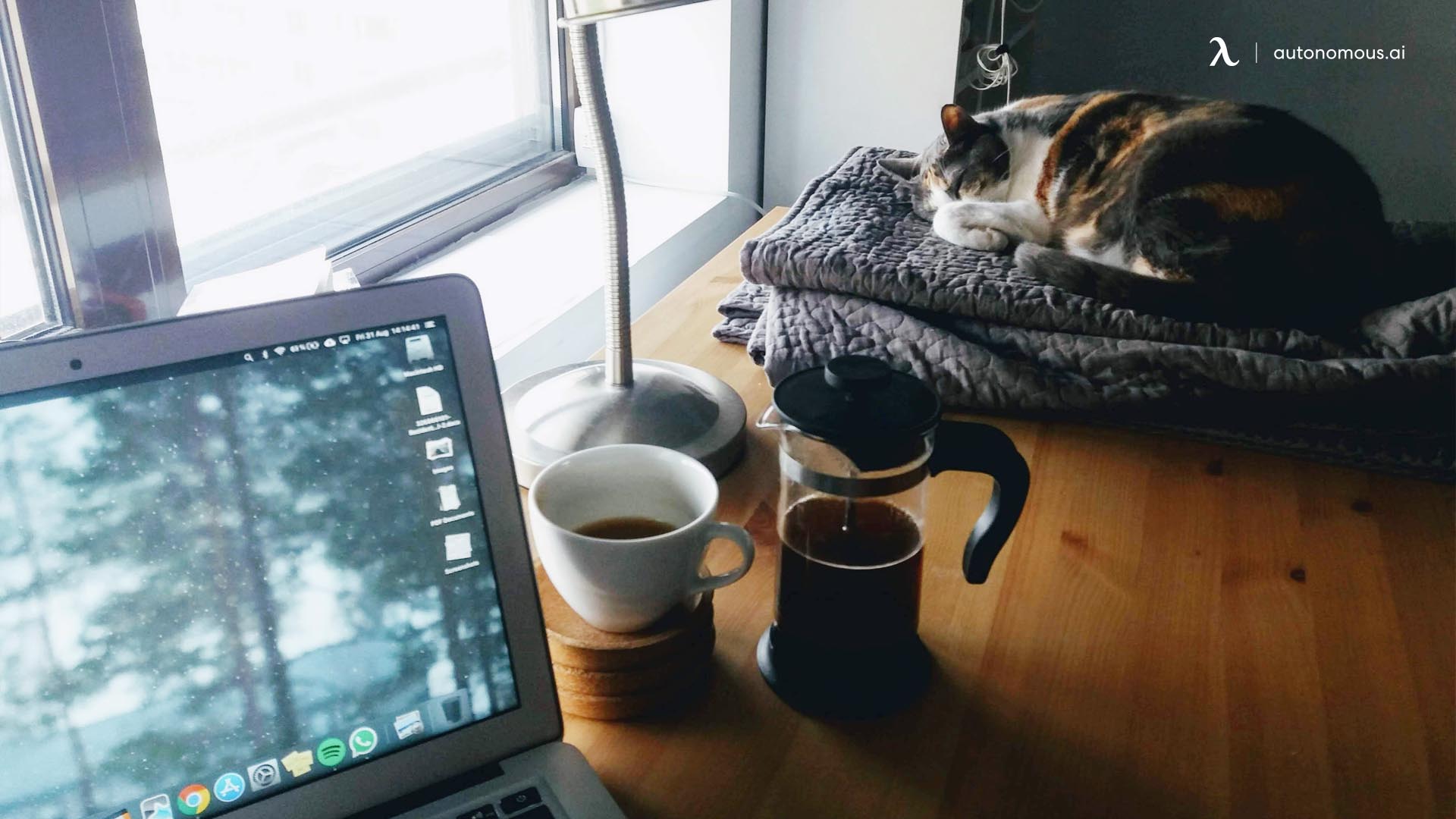
You may start to see signs of anxiety if your pet has been cooped up for a long time, and particularly if they are accustomed to getting your attention any time they want during quarantine.
Do not cave if your pet starts whining, crying, or nudging at you during work hours. This will only tell your pet that they are in charge, and they can get what they want by crying.
When you work from home, your pet is not the boss—you are. Make sure that you're acting like it. Your pet may see you are focused on something else and desire attention, but it is important to ignore this attention-seeking and teach them they will be rewarded for calm behavior.
Prepare for work calls
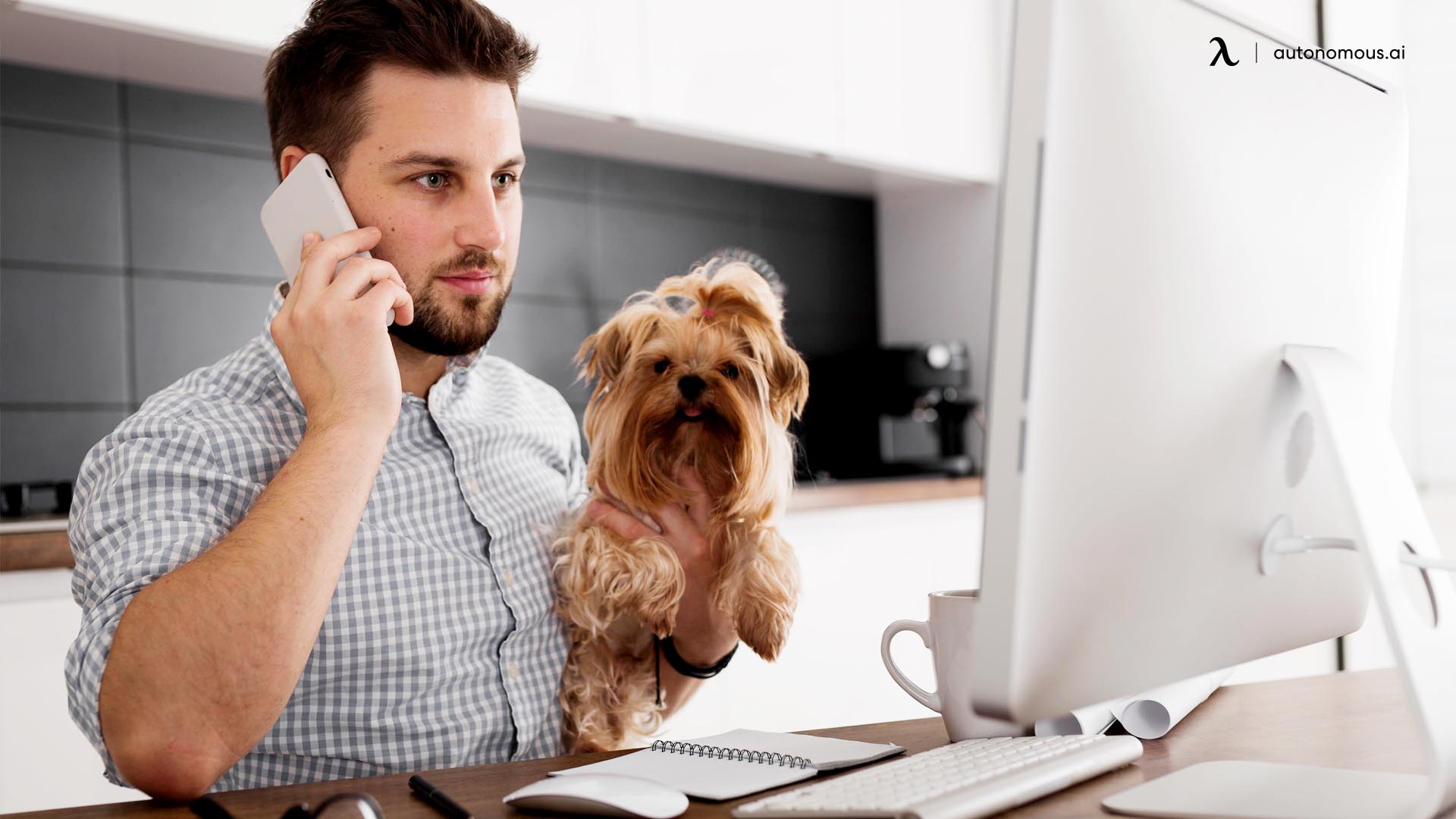
The most distracting thing your pet can do is become a diva during a work call, especially if this includes noisy barking, hissing, yipping, or knocking over objects.
During an important call, don’t get derailed by a needy pet. Prepare for the call by giving your pet a special toy in advance (you can even keep it just for meetings, to signal its “specialness”) or other activity to keep them occupied. Don’t be afraid to get creative with whatever’s on hand like a cardboard box or takeout container. You can even bring out the big guns with a treat or special meal if you really need quiet time.
Bleiben Sie mit uns in Verbindung!
Abonnieren Sie unsere wöchentlichen Updates, um über unsere neuesten Innovationen und Community-Neuigkeiten auf dem Laufenden zu bleiben!
Sag es weiter



/https://storage.googleapis.com/s3-autonomous-upgrade-3/production/ecm/230914/bulk-order-sep-2023-720x1200-CTA-min.jpg)

/https://storage.googleapis.com/s3-autonomous-upgrade-3/static/upload/images/new_post_author/molly-stoneman-27.jpg)